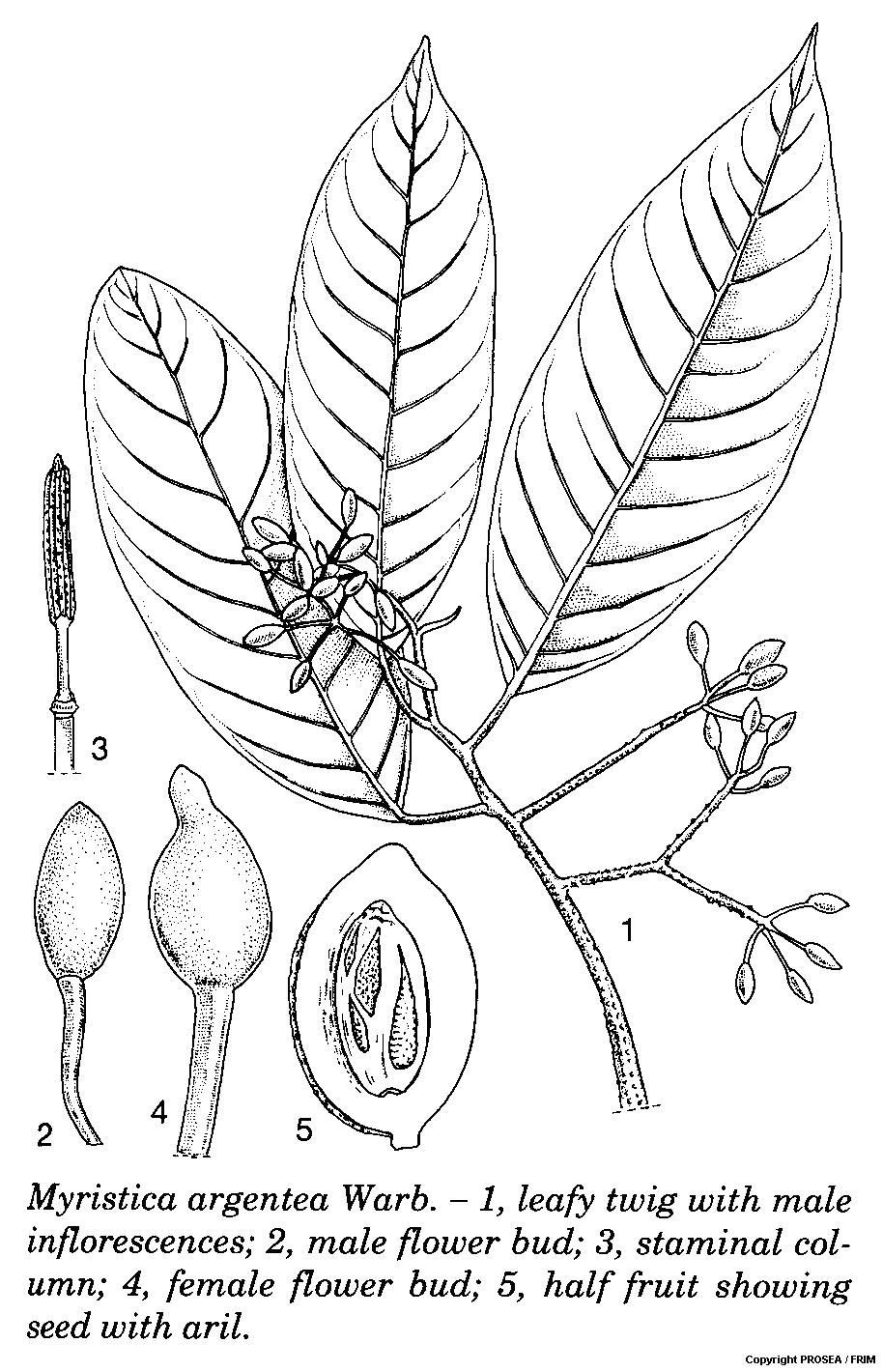Myristica argentea Warb.
Family
Myristicaceae
Synonyms
Myristica finschii Warb.
Vernacular Names
| Malaysia | Pala papua. |
| English | Papua or Papuan nutmeg, long nutmeg, Macassar nutmeg. |
| Indonesia | Pala Irian (General), pala lelaki (Java), henggi (Irian Jaya). |
| French | Noix de muscade mâle, noix de muscade longue. |
Geographical Distributions
Myristica argentea probably originated in Irian Jaya, where it occurs both wild and cultivated. In the wild, it is confined to the Bomberi peninsula of Irian Jaya, while its cultivation has spread along the coast, also into Papua New Guinea. Occasionally, it is also cultivated in the Moluccas.
Description
Myristica argentea can grow up to 15-20(-25) m tall. The bark is dark or blackish grey and with very small scales while the sap is red. The older twigs are wrinkled by conspicuous wart-like lenticels.
The leaves are papery and the petiole is 1.5-2 cm long. The leaves blade are mostly elliptical-lance-shaped, measuring 10-20(-25) cm x 4-6(-10) cm and wedge-shaped at the base. The lower surface is silvery with short cobweb-like hairs while the midrib and 9-13 pairs of veins are sunken above and prominent beneath.
The male inflorescence is 2-5 cm long, slender, simple or mostly forked once. It bears 3-5 flowers. The pedicel is 1-1.3 cm long and slender. The perianth is ellipsoidal, measuring 7-11 mm x 5 mm, medium brown and slightly hairless while the female inflorescence is 1-1.5 cm long. The main axis is usually simple but sometimes bifurcate. The pedicel is 8 mm long. The perianth is ovoid-ellipsoidal, measuring 8-10 mm x 5-5.5 mm and with a beak-like apex. The ovary is flask-shaped, light brown hairy and measuring 3-4 mm x 7 mm.
The fruit is ellipsoidal, measuring 4.5-8.5 cm x 4.5-5.5 cm, slightly narrowed at both ends, glabrescent and yellow with some brown pustules. The seed is oblong-cylindrical, measures up to 4 cm long, broadening at the base and shiny black-brown. The red aril is thin.
Ecology / Cultivation
Most Myristica spp. are inhabitants of lowland, tropical, evergreen rainforests up to 800 m altitude, though there are several mountain species as well. They usually form part of the second storey, though some reach the top of canopy. Myristica argentea grows on slopes below 700 m altitude.
Line Drawing / Photograph
References
- Plant Resources of South-East Asia No. 13: Spices.


